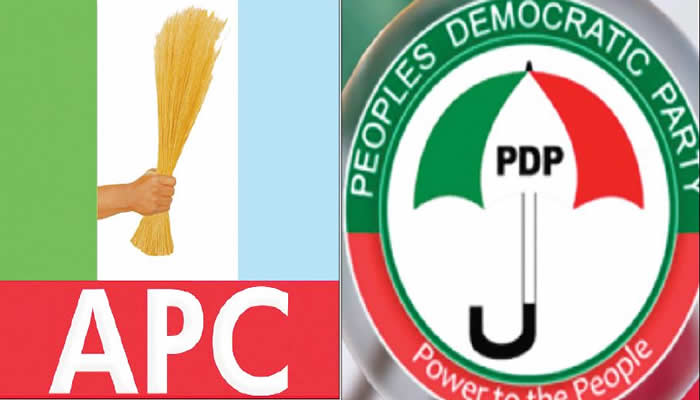The political landscape of Osun State was recently ignited by a controversial billboard featuring both President Bola Tinubu and Governor Ademola Adeleke, sparking a heated exchange between the state chapters of the All Progressives Congress (APC) and the Peoples Democratic Party (PDP). The billboard, bearing the slogan “Continuity of Progress,” was sponsored by a group called “Osun Leaders of Thought.” The Osun APC swiftly condemned the display, labeling it a fraudulent and absurd attempt to link their party’s national leader with the opposition governor. They characterized the pairing as an “irreverent attitude” and a ludicrous comparison of “the sky with the ground.” The party vehemently distanced itself from the billboard, attributing its creation to individuals seeking personal gain from the governor’s administration.
In response, Governor Adeleke’s spokesperson, Olawale Rasheed, dismissed the APC’s outrage as stemming from confusion and a loss of credibility. He argued that the governor was enjoying widespread support both locally and nationally, citing endorsements from various groups and positive appraisals of his administration’s performance. Rasheed attributed the APC’s reaction to the “shock of national and local endorsements” which he claimed was creating an “identity crisis” for the opposition party. He further suggested that the APC was struggling to cope with Adeleke’s successful investment drives and growing popularity, leading them to “rant” about billboards erected by non-governmental organizations.
The APC doubled down on its criticism, accusing the billboard’s creators of lacking tact and diplomacy in their political maneuvering. They reiterated their condemnation of the display, describing it as a “nose and eye sore” that exemplified political heresy in a traditionally progressive region. The party emphasized the perceived mismatch between Tinubu’s political stature and Adeleke’s, questioning how anyone could compare a “political Lilliputian” to a “political oracle and giant.” They urged their members and supporters to disregard the “counterfeit” billboard and its message.
The back-and-forth continued with Rasheed further characterizing the APC’s attacks as confirmation of their identity crisis and frustration with Adeleke’s achievements. He pointed to the governor’s successful meeting with the UK Prime Minister’s trade envoy, highlighting the positive outcomes and the recognition it received. Rasheed also emphasized Adeleke’s efforts in securing a cultural tourism partnership with the British Museum and establishing connections between UK and Osun businesses. He challenged the APC to respond to these accomplishments, anticipating further “lies and misinformation” from the opposition.
The dispute over the billboard underscores the deep political divisions within Osun State. The APC’s vehement rejection of the display suggests an unwillingness to associate their national leader with the PDP governor, highlighting the ongoing rivalry between the two parties. Conversely, the PDP’s response frames the billboard as a reflection of Adeleke’s growing support and achievements, portraying the APC’s criticism as rooted in jealousy and desperation. This exchange serves as a microcosm of the larger political battles being fought in the state and reflects the intense competition for public support.
The billboard controversy also raises questions about the use of political symbolism and the strategies employed to influence public perception. The “Osun Leaders of Thought” remain a somewhat ambiguous entity, and their motivations for sponsoring the billboard are open to interpretation. Whether the billboard represents a genuine grassroots effort or a calculated political maneuver remains unclear. Regardless of its origins, the billboard has successfully sparked a public debate, drawing attention to the political dynamics within Osun State and the ongoing struggle for power between the APC and the PDP. The incident highlights how seemingly innocuous displays can become flashpoints in highly charged political environments.














